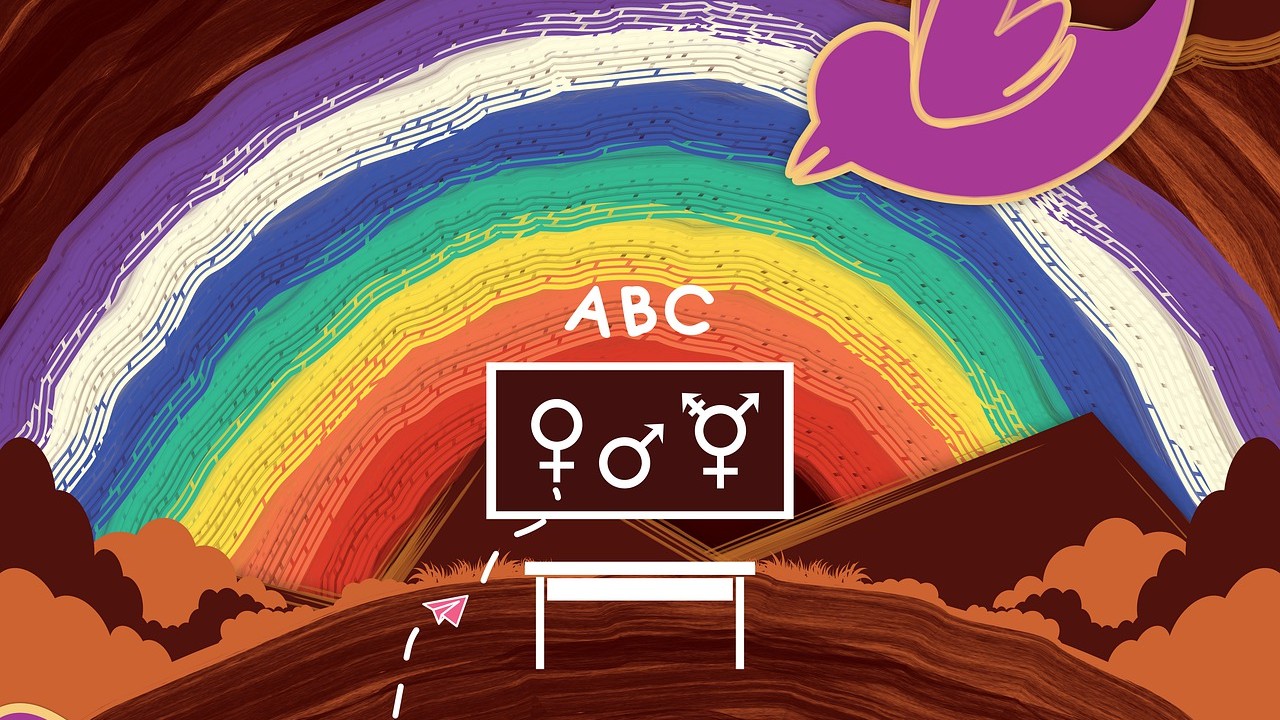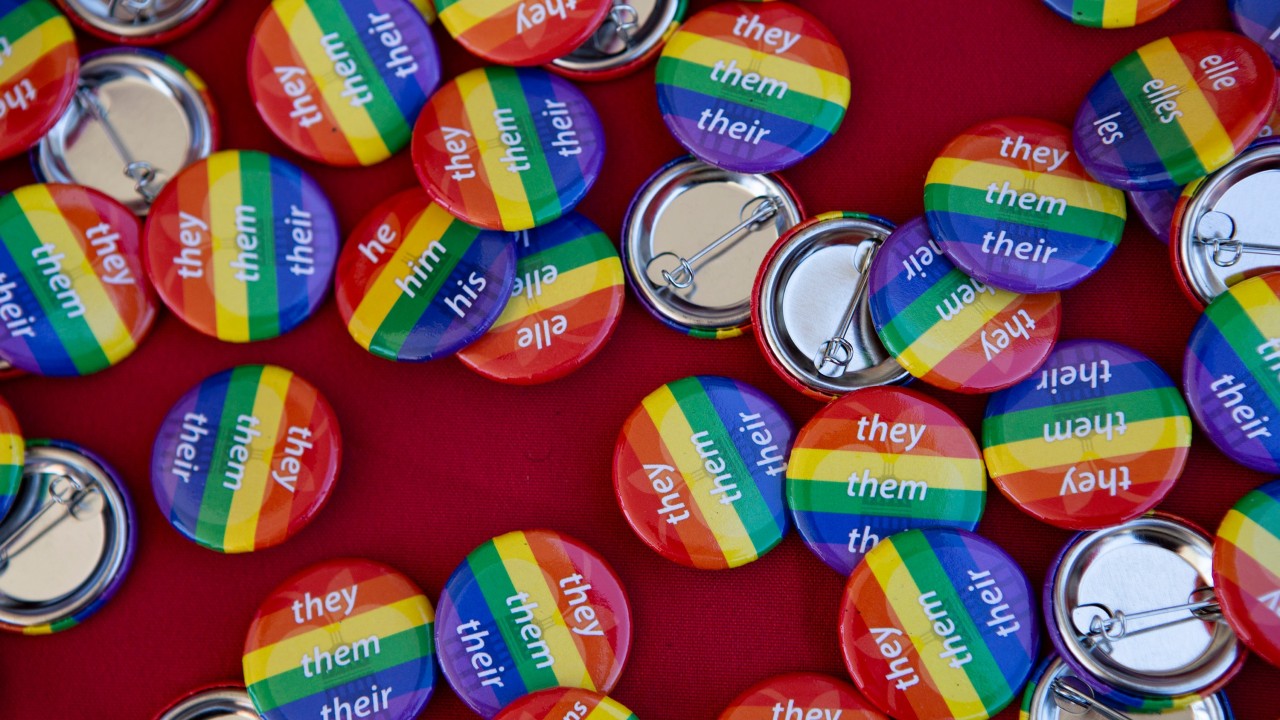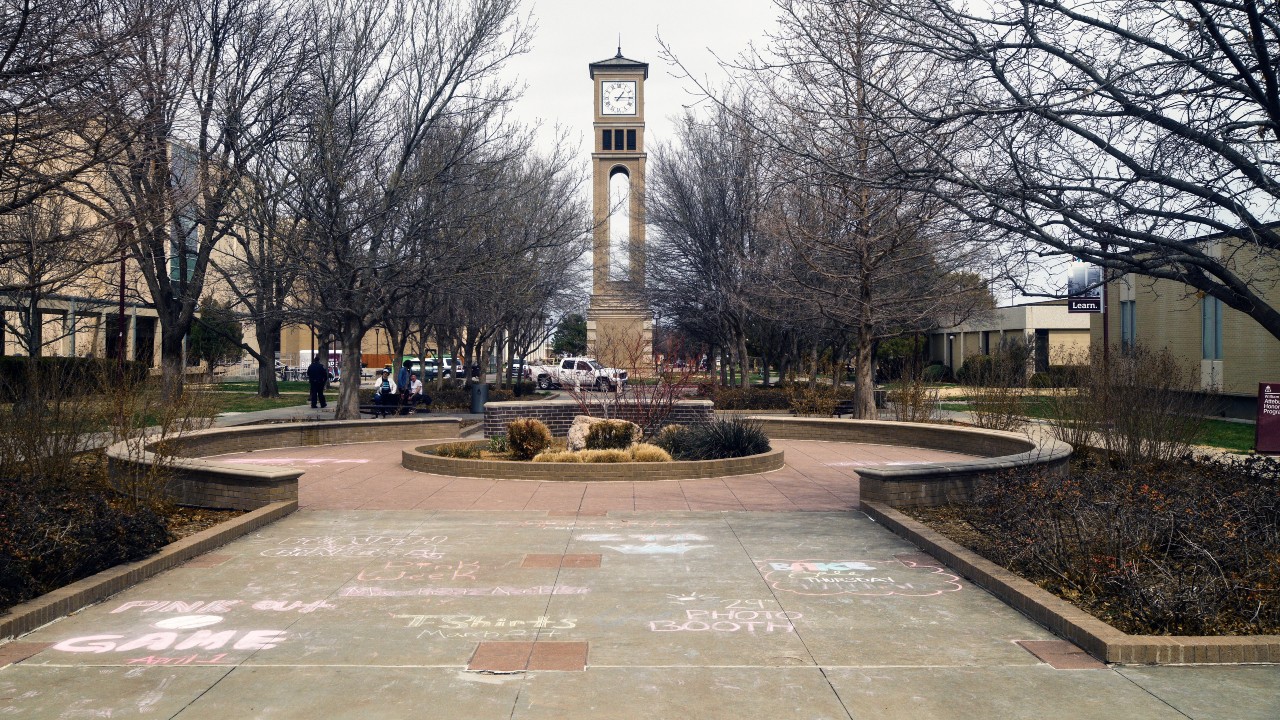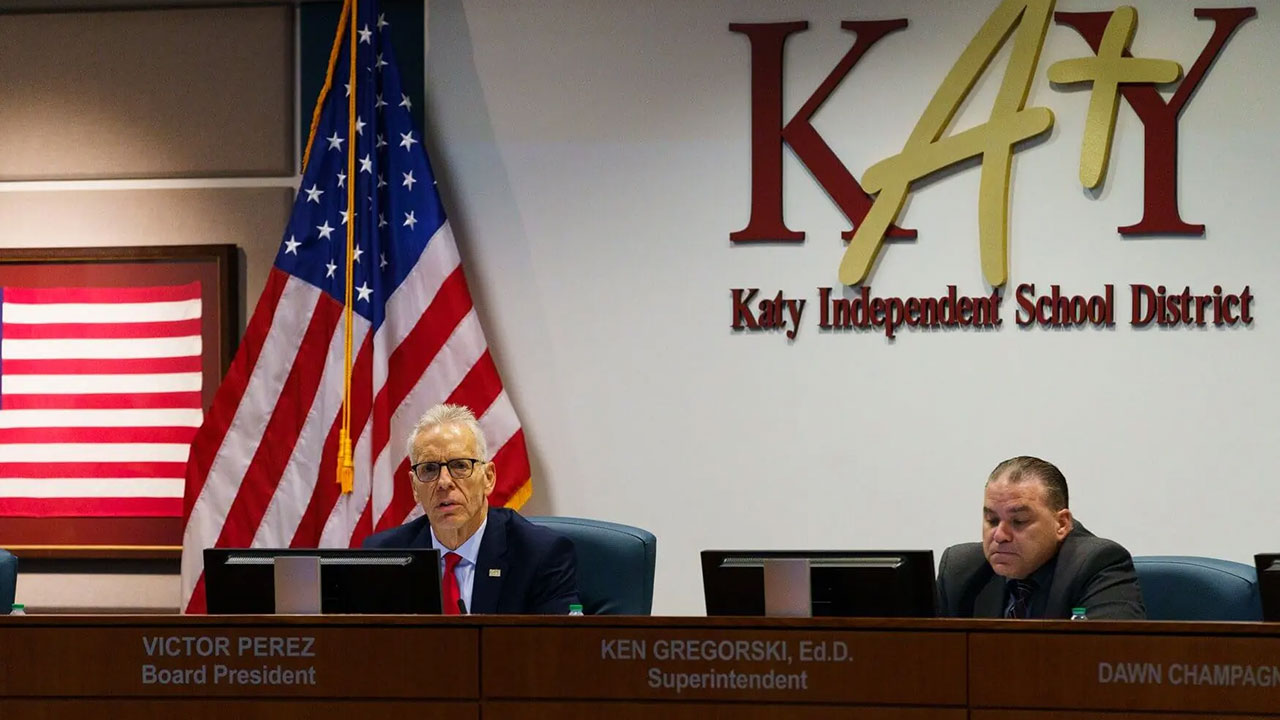Education
More states want to restrict how LGBTQ+ people, issues are discussed in schools
At least seven state legislatures are discussing whether to regulate how textbooks, teachers and school curriculums talk about gender and sexualities.

This story was originally published by The 19th
 At least seven states have introduced bills to regulate how textbooks and school curriculums talk about LGBTQ+ people or how teachers can discuss gender identity and sexual orientation with students.
At least seven states have introduced bills to regulate how textbooks and school curriculums talk about LGBTQ+ people or how teachers can discuss gender identity and sexual orientation with students.
None have become law, although some — like Florida’s bill on classroom discussion, called the “Don’t Say Gay” bill by advocates — are advancing in state legislatures, and more could be introduced as the year continues. These bills focused on schools are at the nexus of two movements: adding restrictions to LGBTQ+ youth and limiting what can be taught in schools. The fights over sex and gender are happening alongside those over teaching about bias and systemic racism.
Proponents of the curriculum bills say that they are designed to give parents a say in their kids’ schools and protect kids. But LGBTQ+ advocates say the bills, if they become law, will put already at-risk kids in more danger of mental health issues or bullying — and even put them at risk of being outed to their families.
While many of the nearly 150 anti-LGBTQ+ bills brought so far focus on restricting gender-affirming health care access and limiting transgender students’ ability to play in school sports, according to the ACLU’s count, the number of bills focused on education or curriculum restrictions is rising compared with last year.
Some measures are more severe than others: A proposed Tennessee bill would ban public school textbooks that “promote, normalize, support, or address lesbian, gay, bisexual or transgender (LGBT) issues or lifestyles.” An Oklahoma bill would require school libraries to remove books related to LGBTQ+ issues. In Arizona, another bill would require parents’ written permission for students to join any student group or club involving gender identity and sexuality.
Most prominently, in Florida a proposed bill that is moving through House committees would prohibit school districts from encouraging classroom discussions on gender identity or sexual orientation and allow parents to sue if a school violates that agreement. The companion bill passed Florida’s Senate education committee on Tuesday, and advocacy groups including Equality Florida expressed frustration that public testimony was halted early.
Republican Florida Gov. Ron DeSantis appeared to endorse the effort at a Monday press event, linking school discussions about gender identity with critical race theory, an educational framework created 40 years ago that argues the country’s legacy of racism and slavery still affects Black Americans.
“We’ve seen instances of students being told by different folks in school, ‘Oh, well, don’t worry, don’t pick your gender yet, do all this other stuff.’ They won’t tell the parents about these discussions that are happening. That is entirely inappropriate,” DeSantis said, adding that “I don’t think it’s going on in large numbers.”
The White House denounced Florida’s bill in an emailed statement on Tuesday, adding that the legislation “is not an isolated action,” as more Republican lawmakers “take actions to regulate what students can or cannot read, what they can or cannot learn, and most troubling, who they can or cannot be.”
Jeanne Nettles, who teaches 7th and 8th grade in St. Johns County, Florida, said the bill could make some of her students — such as those with two moms or two dads — feel like they need to hide parts of themselves at school.
“Are they not allowed to talk about their home life? … What are you trying to tell them by saying ‘you can’t talk about it’?” she said in an interview after the school day had ended.
She also feels it’s her responsibility as a teacher to be there for students who aren’t ready to talk to their parents about their gender identity or sexual orientation. She’s a safe adult in their lives that they can talk to, she said — and being bisexual has underscored to her the importance of being an out and visible ally for students.
Lawmakers’ heightened interest in reining in students’ exposure to LGBTQ+ issues comes during a record-setting legislative onslaught against trans youth in particular. It also follows a year during which some school districts banned Pride flags as political speech and as part of a broader push from the right to censor or ban books about race, sex and gender.
“All of those efforts are related,” said Aaron Ridings, director of public policy at the Gay, Lesbian and Straight Education Network (GLSEN). They are part of a broader political push to exclude queer youth and reduce their access to educational opportunities, he said.
“These heavy-handed mandates around parental and family involvement are really unhelpful and increase the risk of LGBTQ+ young people being outed to families and parents who may not be affirming,” Ridings said.
Family notification is the goal of several initiatives. Bills recently brought in Arizona and Alabama call for schools — or specifically teachers, counselors, and nurses — to inform parents about a student questioning their gender identity or being transgender.
While anti-LGBTQ+ curriculum bills are not new, they have not had this kind of emphasis behind them before, said Cathryn Oakley, state legislative director and senior counsel at the Human Rights Campaign. She expects to see more of them as the year progresses.
HRC is especially concerned with how the bills frame restrictions on LGBTQ+ students as supporting parents’ rights, she said — including mandating that parents should know if their child comes out at school, but not at home.
“If a kid isn’t safe coming out at home, or they’re not sure, coming out to a guidance counselor is perhaps a significantly better idea,” she said.
Austin Johnson, who teaches sociology at Kenyon College and studies LGBTQ+ health, is worried that bills focused on schools — amid other anti-trans legislation — will make the growing problem of poor mental health among LGBTQ+ youth even worse.
“It’s a perfect storm for exacerbating what’s already a growing problem,” he said. In his own research with 18- to 24-year-olds last fall, which is expected to be peer-reviewed in March, he found that most queer kids are experiencing poor mental health.
Hannah Willard, vice president of government affairs for Freedom for All Americans, said the organization is also seeing an increase in legislation impacting LGBTQ+ kids experience at school — and the overlap between anti-LGBTQ bills focused on schools and curriculums, combined with increased pressure within school districts to ban LGBTQ+ books and flags, also adds further precarity to the situation.
“There are a lot of bills that seek to ban diversity, education, inclusion and critical race theory that also seek to ban curriculum and conversations about sexual orientation and gender identity and different family structures,” she said.
South Dakota is the first state this year to sign an anti-trans bill into law — banning trans girls from playing on girls’ sports teams in schools. The White House condemned lawmakers in the state on Monday for passing the bill.
Johnson said that, if he had been able to learn about what being transgender meant in high school — especially from a teacher — that would have alleviated the despair that enveloped him; despair that he couldn’t understand or find words for on his own.
“I think it would have totally changed my life,” he said. “I think that I would have made different choices in terms of self care. … I didn’t know myself, so it was hard to care for myself.”
The 19th is an independent, nonprofit newsroom reporting at the intersection of gender, politics and policy.

Education
Feds investigate another Texas school district for its gender identity mandate
Katy ISD’s board voted this past fall to require staff to notify parents if their child wants to use a different pronoun or identifies as a different gender.

This article originally appeared in The Texas Tribune
 The U.S. Department of Education’s Office for Civil Rights opened an investigation Monday into Katy Independent School District’s gender identity policy on the basis of gender harassment under Title IX. The investigation came nine months after the Houston Landing reported that the district adopted a policy that notifies parents if their child requests to use a different name or pronouns at school.
The U.S. Department of Education’s Office for Civil Rights opened an investigation Monday into Katy Independent School District’s gender identity policy on the basis of gender harassment under Title IX. The investigation came nine months after the Houston Landing reported that the district adopted a policy that notifies parents if their child requests to use a different name or pronouns at school.
Katy ISD did not respond to a request of how many parents have been notified this year under the new policy, which requires staff to inform parents that students are transgender or ask to use different names or pronouns.
The Houston Chronicle reported in December that the district had notified parents at least 23 times since the policy was adopted.
The gender identity policy also bars schools from teaching “gender fluidity” and denies students from competing in sports with the gender they identify with, which mirrors state legislation already regulating K-12 athletics.
Students Engaged in Advancing Texas, a student-led advocacy group, filed a complaint with the U.S. Department of Education in November regarding the policy. Katy ISD graduate and member of SEAT Cameron Samuels labels the investigation as a win against the conservative policies being passed in the district.
“Elected solely on platforms to target marginalized students, far-right school board candidates accomplished exactly what they were elected to do: weaponize identity and neglect students’ educational needs,” they said.
Title IX prohibits sex-based discrimination in educational settings or federally funded activities. Gov. Greg Abbott has loudly voiced his opposition to the federal law recently ordering the Texas Education Agency to disregard the Biden administration’s expansion of Title IX.
“The district is committed to offering equal educational opportunities to our entire community,” a spokesperson from Katy ISD told the Tribune in a response to the investigation. “While we have received the OCR filing and deny any wrongdoing, we are committed to remaining fully cooperative and responsive throughout the process.”
Victor Perez, Katy ISD board president and proponent of the policy, argued that the policy was “mischaracterized” by community members as an attack on its queer and transgender students and instead relieves the burden for staff withholding information from parents. The policy was passed at a board meeting in August with a vote of 4-3 after four hours of public comment.
Alastair Parker, a member of the Cinco Ranch High School Gender-Sexuality Alliance, spoke at the board meeting in opposition to the policy.
Parker and others argued that the policy infringes on the rights of transgender kids to express themselves and opens them to potential harm if they are outed to transphobic parents or caregivers.
Johnathan Gooch from Equality Texas, a nonprofit advocacy group for LGBTQ+ Texans, said he hopes students recognize their power to report policies like this in the wake of the increasing number of legislation targeting LGBTQ+ youth.
This isn’t the first instance in Texas of a gender related policy being investigated on the federal level. Carroll ISD in Tarrant County was reported to have eight open investigations last February after it eliminated protections over race, religion, gender and sexual orientation.
There are documented mental health benefits to using preferred pronouns. A research team at the University Texas at Austin conducted a study in which they concluded that students in gender-affirming environments report 71% fewer symptoms of severe depression, a 34% decrease in reported suicidal ideation and a 65% decrease in suicide attempts.
“When students place their trust in teachers and school administration, the school has a duty to preserve that trust,” Gooch said. “That duty requires schools to ensure that no disclosure would place a student in harm’s way.”
Parker has been out as a transgender man since the seventh grade and is supported by his father, who he resides with. He acknowledged that this isn’t the case for many of his classmates as some have parents that are less accepting.
His teachers have gone by his preferred name and pronouns for his entire high school experience. But since the policy has been enacted, he has seen some of his peers go by their deadnames fearing that their parents would be notified.
Over the past year, other schools across the state have adopted similar policies.
Keller ISD, which is also in Tarrant County, passed a policy in late June that prevents students from using their preferred name and pronouns or using restrooms with the gender they identify with.
The policy was met with retaliation from the Texas American Civil Liberties Union, writing in a letter to the district that the policy is “deeply invasive and unlawful for school administrators to interrogate students’ private medical information in this way.”
As the end of the school year nears, Parker observed the policy being enforced at varying levels of severity by teachers. The passing of legislation or policy like this deters from the ongoing health crisis for queer and transgender youth and is wholly unnecessary, he said.
“If a child’s not telling their parents something like that, it’s for a reason,” he said. “I know that most of the people who are in favor of this are the ones who bounce off whatever their parents have told them to repeat.”
Disclosure: Equality Texas has been a financial supporter of The Texas Tribune, a nonprofit, nonpartisan news organization that is funded in part by donations from members, foundations and corporate sponsors. Financial supporters play no role in the Tribune’s journalism. Find a complete list of them here.
The Texas Tribune is a nonpartisan, nonprofit media organization that informs Texans — and engages with them – about public policy, politics, government and statewide issues.
Amarillo
Appeals court considers whether West Texas A&M drag show was unconstitutionally banned
University President Walter Wendler canceled a drag performance last year, claiming such shows “denigrate and demean women.”

This article originally appeared in The Texas Tribune
 A federal appeals court considering whether West Texas A&M University’s president violated the First Amendment when he canceled a campus drag show last year focused many of their questions Monday on a U.S. Supreme Court ruling that upheld campus non-discrimination policies.
A federal appeals court considering whether West Texas A&M University’s president violated the First Amendment when he canceled a campus drag show last year focused many of their questions Monday on a U.S. Supreme Court ruling that upheld campus non-discrimination policies.
But the panel of three judges used that 2010 case — which said universities can require groups to admit LGBTQ+ students — to suggest that school officials could also ban drag shows because some people find the performances offensive to women.
A lawyer representing a group of West Texas A&M students who’ve twice attempted to host a drag show on campus argued before the 5th U.S. Circuit Court of Appeals Monday that President Walter Wendler discriminated based on viewpoint and censored speech when canceling the performances.
In March 2023, Wendler banned drag shows in response to a student fundraiser that featured drag performers. The president argued the performances “denigrate and demean women,” and shouldn’t be allowed on the public university’s campus.
In September, a federal judge said Wendler acted within his authority to cancel the drag show. In his opinion, U.S. District Judge Matthew Kacsmaryk wrote, at “this point in Free Speech jurisprudence, it is not clearly established that all ‘drag shows’ are categorically ‘expressive conduct.’”
Last month, students with WT Spectrum, the student group at the university, hoped to hold another drag show on campus — to show support for the LGBTQ+ community in a staunchly conservative corner of Texas.
With Wendler’s campus-wide ban still in place, the Supreme Court declined to intervene and the president again ordered the fundraiser from taking place.
The panel of judges hearing the appeal Monday were James Dennis, James Ho and Leslie Southwick.
Many of their questions centered around Christian Legal Society v. Martinez, a case in which the Supreme Court upheld a policy of the University of California, Hastings College of the Law, that bars student groups from excluding members based on status or beliefs.
In 2010, the Supreme Court affirmed that Hastings’ policy does not violate the First Amendment rights of CLS, a group of students that wanted to be officially recognized on campus while not allowing people who engage in “unrepentant homosexual conduct” from joining.
The 5th Circuit judges Monday seemed to suggest that Wendler’s ban was no different from the policy at the center of the 2010 Supreme Court case. One of the judges, who didn’t identify themselves before speaking, asked if plaintiffs intended to use the case in question to overturn CLS.
“Maybe we should overturn CLS?” one of three judges said. “Many people would like CLS overturned.”
Ho equated the policy upheld in CLS with Wendler’s drag ban. He said both intend to make everyone feel included, but the policies have the consequence of targeting one group. In CLS’ case, he said that Christians were singled out on Hastings’ campus for not allowing LGBTQ+ individuals to join. Ho said that previous groups on Hastings’ campus could exclude members, but CLS was singled out by the university’s non-discrimination policy.
JT Morris, senior attorney for the Foundation for Individual Rights and Expression who represented the students, argued that the judges were comparing “apples to oranges” between the two cases.
Morris argued CLS is about a content-neutral policy, while Wendler was clearly discriminating based on viewpoint.
“The First Amendment does not allow the government to use the subjective term ‘offensive’ to restrict speech,” Morris said.
Joseph N. Mazzara, a lawyer with the Texas Attorney General’s Office who represented Wendler, said the students had not suffered any injury as a result of the no-drag policy because there was no future event featuring drag performers planned. Additionally, Mazzara said Wendler’s policy carried no criminal penalties and students could host drag performances off campus.
Mazzara said Wendler’s ban was not a free speech violation, but rather it was akin to banning certain conduct, like skateboarding on the grounds of a monument. He said drag shows constituted conduct, not speech.
“They’re able to do everything they want to do, they’re able to say all the speech they want to [say],” Mazzara said, referring to the student group WT Spectrum. “They just can’t do this one particular thing in this one particular place.”
A judge asked Mazzara how the university would have treated drag shows put on by other student groups, such as a fraternity. The judges seemed to agree with Mazzara that Wendler’s restriction did not target a specific viewpoint.
“If a Christian legal group wanted to have a ‘Drag for Jesus’ event that would also be banned,” Mazzara said.
One judge suggested that some drag shows are offensive to the transgender community, and thus Wendler’s ban would equally protect that population from offensive performances.
Allison Marie Collins, another lawyer from the Attorney General’s Office representing other defendants named in the lawsuit, argued the appellate judges should not impose any restrictions on Texas A&M system Chancellor John Sharp or West Texas A&M Vice President for Student Affairs Christopher Thomas. She argued an injunction against Sharp or Thomas would be overbroad, because it’s clear that only Wendler has acted to stop these shows.
“Neither Chancellor Sharp nor Dr. Thomas have remotely engaged in viewpoint discrimination, exclusion from a public forum or a prior restraint complaint to speech,” Collins said.
In his rebuttal, Morris argued the plaintiffs have standing over Sharp because he has the authority over Wendler to put an end to this restriction on free speech.
“He has the authority to do what’s best for the campus,” Morris said of Sharp. “He should have put an end to this prior restraint, which shouldn’t have lasted a day, and has now lasted a year.”
Disclosure: Texas A&M University and West Texas A&M University have been financial supporters of The Texas Tribune, a nonprofit, nonpartisan news organization that is funded in part by donations from members, foundations and corporate sponsors. Financial supporters play no role in the Tribune’s journalism. Find a complete list of them here.
The Texas Tribune is a nonpartisan, nonprofit media organization that informs Texans — and engages with them – about public policy, politics, government and statewide issues.
Education
Under Katy ISD gender policy, student identities disclosed to parents 19 times since August
Public records obtained by the Houston Landing offer the first glimpse at how often the new, hotly contested policy has been used to disclose LGBTQ+ students’ identities to parents — even if the students aren’t ready.

 Since narrowly passing a controversial gender policy two months ago, Katy Independent School District has sent 19 notifications informing parents that their child identified themselves as transgender or requested to use different names or pronouns at school.
Since narrowly passing a controversial gender policy two months ago, Katy Independent School District has sent 19 notifications informing parents that their child identified themselves as transgender or requested to use different names or pronouns at school.
The number of parental notifications, obtained by the Houston Landing through a public records request, is the first glimpse at how often the new, hotly contested policy has been used to disclose LGBTQ+ students’ identities to parents — even if the students aren’t ready.
So far, the district averages a notification to a parent roughly once every three days.
The district’s policy requires staff to inform parents if their student requests to use different pronouns or names, or if they identify themselves as transgender — and obtain written parental consent to comply with the request. It also prohibits employees from asking for students’ preferred pronouns and discussing “gender fluidity,” and requires students to use bathrooms that align with their sex assigned at birth.
Jarred Burton, a student leader at Tompkins High School’s Sexuality and Gender Alliance, said the number of notifications already sent to parents is both depressing and surprising. Critics, including Katy parents, LGBTQ+ students and local advocates, have blasted the policy as a dangerous measure with the potential to expose students’ gender identities to unsupportive parents, further harming a community that already faces a higher risk of mental health issues than their peers.
“It’s just sad to see this actually happening,” Burton said. “It shows that (the policy) is not a bluff.”
Board members who supported the policy hailed it as a measure that would center parents’ right to be informed about their child’s gender identity and protect teachers from making uncomfortable decisions about concealing such information from parents.
“(Parents are) supposed to be looking after the health and welfare of their child,” Board President Victor Perez said at a late August meeting. “Withholding that information from the parent, that is a great burden on staff.”
It’s unclear how many parents were already aware of their child’s gender identity. District officials also did not make any board members available for an interview on the matter.
“The policy is intended to provide parents and guardians the opportunity to be made aware of their child’s name change request, and the opportunity to grant or deny approval of said request,” Katy spokesperson Nick Petito said in a statement Wednesday.

Ash Thornton, a transgender man and a junior at Tompkins High School, said the number of notifications being sent home will discourage LGBTQ+ students from feeling safe to explore their identities.
“It signals that it’s something bad, them being transgender or expressing gender in a way that’s different,” Thornton said. “It definitely messes up student-teacher relationships.”
Employees are not required to comply with a student’s name or pronoun change even if a parent gives consent, the policy states.
One staff member on every campus is responsible for processing and sending notifications to parents and guardians, Petito said. The policy makes an exception for “cases of suspected abuse.”
Students belonging to LGBTQ+ clubs have told the Landing the policy has caused their schools to become less of a safe space and has instilled fear among LGBTQ+ youth in Katy.
“There’s just been this looming cloud of dread over a lot of people,” Burton said in a September interview. “There’s gonna be a lot of people that get in trouble by their parents or get hurt. … It just sometimes keeps me up at night a little bit because it’s hard to imagine how much hate people can have to pass something like this.”
The number of notifications sent to parents to date leaves Thornton to wonder what else is to come.
“It’s only been two months and there’s already 19, how many more people are going to be affected by even just the end of the semester?” he said.
The Houston Landing is a nonprofit newsroom devoted to public service journalism for all Houstonians.
This article first appeared on the Houston Landing and is republished here with permission.


